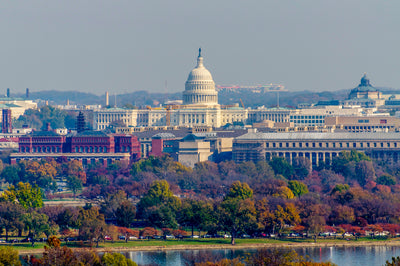Emily Driehaus | Science Communication Intern
The Environmental Protection Agency (EPA) announced that it will revise regulations from the Trump administration that limit protections for certain bodies of water. The rule, commonly referred to as WOTUS, has been amended several times over various years.
The EPA and the Army said in a statement that the rule “is leading to significant environmental degradation.” Acting Assistant Secretary of the Army for Civil Works Jaime Pinkham also said that current regulations established under the Trump administration have led to a drop of 25 percentage points in decisions that would give bodies of water protections under the Clean Water Act.
The Navigable Waters Protection Rule was established on April 21, 2020 after the Trump administration repealed an Obama-era rule that recognized smaller bodies of water as “waters of the United States” and gave them protections if they contributed to a larger water source. Protecting these small water sources was meant to prevent pollution from flowing into larger bodies of water, including drinking water resources.
The Trump administration’s rule updated the definition of “waters of the United States” to exclude waters such as wetlands and streams from receiving protections under the Clean Water Act.
The exclusion of certain bodies of water under the Navigable Waters Protection Rule is most significant in arid states like Arizona and New Mexico. Of the 1,500 streams in these two states, almost every one is excluded from protections.
According to The Hill, EPA Administrator Michael Regan said that the agency will not “return verbatim” to the regulations from the Obama administration in a recent congressional hearing.
A statement released by the EPA said that the new regulations will be guided by the Clean Water Act, the effects of climate change on water resources, the practicality of implementation, and input from the agricultural community, tribal and local governments, environmental groups, and communities with concerns about environmental justice.
Our Take
We are very encouraged by the Biden administration and EPA’s step toward fixing water regulations. Water pollution can expose the public to harmful chemicals and substances through their drinking water, and we hope the new revisions to the Navigable Waters Protection Rule will recognize the importance of small bodies of water to the environment and our drinking water systems and protect them from pollution.
Other Articles We Think You Might Enjoy:Water Infrastructure and Cybersecurity
The American Jobs Plan To Allocate $111 Billion To Water Infrastructure Improvements
New Legislation Aims to Tackle Coal Ash Pollution



